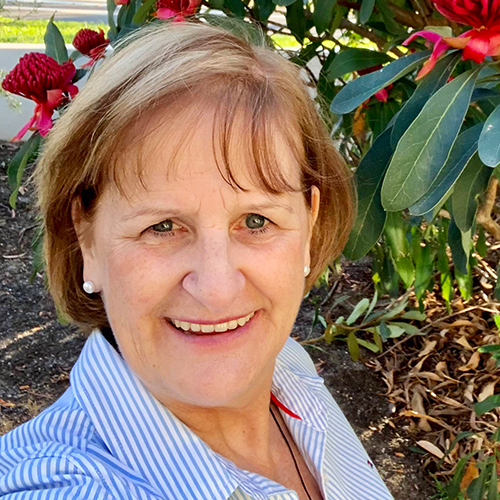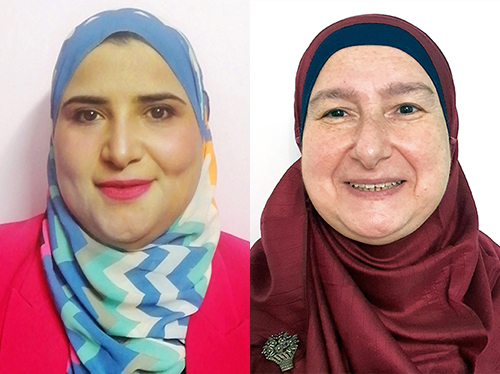 IBCLC Detailed Content Outline: Development and Nutrition Focused CERPs - Section I
IBCLC Detailed Content Outline: Development and Nutrition Focused CERPs - Section I
Access CERPs on Development and Nutrition for the IBCLC Detailed Content Outline recertification requirements. Enjoy convenient on-demand viewing of the latest Development and Nutrition focused IBCLC CERPs at your own pace.


Bryna is a lactation consultant, mentor, educator, and birth doula in the Pacific Northwestern United States. They are active in their community as an advocate for mutual aid, reproductive justice, and reduction in barriers to care. They also own and manage an inclusive private practice. As a member of both Queer and Neurodivergent communities, offering inclusive care on every level is very important to Bryna. Their vision is to offer information and tools to providers to build a community of comprehensive, concordant, and individualized care for all families in the perinatal period.
Topic: Breastfeeding With Ease: The Impact of Infant Reflex Emergence and Integration - [View Abstract]
Topic: Rhythmic Movement for Breastfeeding Function - [View Abstract]
Disorganized or absent infant reflexes can create challenges for breastfeeding/chestfeeding. This presentation takes a close look at the role of movement in the integration of disorganized infant reflexes and the use of rhythmic movement as a method for overcoming infant feeding challenges. This talk also covers socio-cultural impacts of trauma, lack of opportunity for movement, and modern care system barriers to reflex integration.

View Details / Enroll


Leslie Parker has a dual position at the College of Nursing and the College of Medicine at the University of Florida where she is a professor. She has been a neonatal nurse practitioner since 1990 and continues to practice as a neonatal nurse practitioner in the NICU at UF Health. She was the tract coordinator of the neonatal nurse practitioner program from 1992-2011. She has been involved in human milk research for nearly two decades and focuses on improving milk production in mothers of critically ill and premature infants. She is funded by the National Institutes of Health for her team’s work regarding neonatal nutrition including the risk of feeding tube contamination, risks and benefits of gastric residual evaluation and optimizing consumption of breast milk for preterm infants.
Until recently, routine monitoring of gastric residuals has been standard care in most neonatal intensive care units (NICUs). Rationale for this practice includes early recognition of feeding intolerance and necrotizing enterocolitis. However, gastric residuals are often used to direct feeding decisions and thus their use can result in delays and interruptions in feeding resulting in an increased risk of complications. Recent evidence suggests that the routine monitoring of gastric residuals prior to every feeding may not be clinically necessary and other clinical indicators may be sufficient to monitor for feeding intolerance and necrotizing enterocolitis. This presentation will describe practices clinicians are currently using to monitor gastric residuals In addition, an overview of current evidence including the risks and benefits of monitoring gastric residuals, alternatives to monitoring gastric residuals, and how to best change unit practice in order to decrease the routine use of aspirating and evaluating gastric residuals prior to every feeding will be presented.
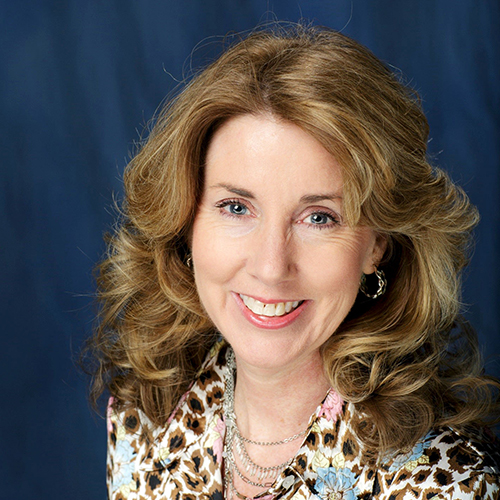
View Details / Enroll
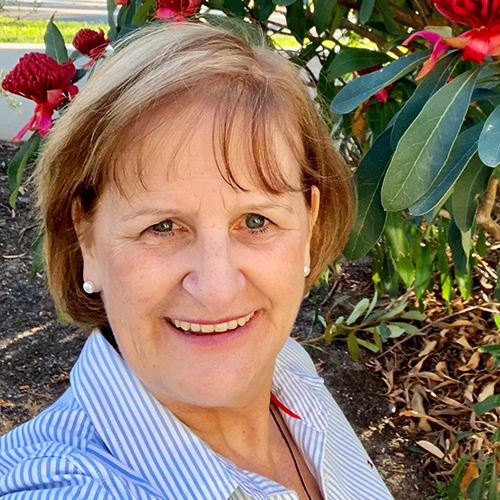

Decalie is a Registered nurse/midwife with over 40 years of experience collectively working as an IBCLC in a clinical roles within Primary Care and Community Health. Currently working as a Child & Family Health Clinical Nurse Specialist 2 in busy Community of the Blue Mountains, NSW Australia. She supports health professionals and parents with education of lactation/infant feeding/settling and behavioural issues for infants and children 0 to 5 years of age as a clinical specialist. A current BFHI Assessor. Has shared her extensive clinical experience in workshops at many ILCA, LCANZ and ABA conferences over the years. Her passion in support for mothers and babies.
Decalie has volunteered for Board of Director for the Australian Lactation Consultants Association (ALCA) 7 years on the ILCA International Lactation Consultant Association, last 2 years as President. On the Inaugural World Trends Initiative WBTI AUS Core group. Advisory committee for International Childbirth Education Ass. ICEA. World Health Organisation working group for revision of BFHI Education package, WABA advisory group. ILCA Nominations committee chair, IBCLC Care award Co chair.
Enjoying the next level of parenting being Mimi to her 3 year old grandson Cole.
The breastfeeding journey for a woman and her baby is very special. Mothers who may be larger-breasted and lactating often have special breastfeeding needs and issues. This online session empowers clinicians with supportive tools to help these women successfully breastfeed. This session will enable clinicians to utilize simple, practical techniques, tips, explore the challenges of larger breasts during lactation. Attendees will develop their advanced breastfeeding counseling skills to manage individual situations and provide the unique support necessary. The research shows that if mothers with above average weight are provided with the appropriate breastfeeding management and support early, their breastfeeding experience will be enhanced and sustained. This sensitive session is designed to aid clinicians in developing their own practical breastfeeding support kit, as well as honing specific skills for a positive outcome when supporting larger breasted women to breastfeed their babies.

View Details / Enroll

Slow Weight Gain in the Early Days of Breastfeeding

Patricia Díaz L., Woman passionate about accompanying Women and Families through their Conscious and Connected gestational, birthing and parenting journeys. She is a trained Pediatrician, IBCLC and Doula. Graduated as a Surgeon physician and Pediatric Specialist from the Central University of Venezuela, at the main Children’s Hospital of the country; JM de los Ríos. From her formative years, she fell in love with the dynamic process of Breastfeeding and the unique physical, nutritional, immunological, qualities of it, along with the transformative emotional and spiritual bond that formed between the new parents and their baby: "Being a witness to that first magical and intimate human contact, is one of the most wonderful sensations in the world; I have ever experienced”. Dr. Patricia Díaz graduated as Promoter and Consultant of the Lactation Center ""Mi Gota de Leche” ( “ My Drop of Milk” ) at the Hospital J.M. de los Ríos, with the endorsement of UNICEF. She was part of the First Cohort of Diplomats in Breastfeeding and Complementary Feeding Practices, of the Faculty of Medicine, at the Central University of Venezuela. Member of the American Academy of Breastfeeding Medicine (ABM) and the International Lactation Consultant Association (ILCA). Trained as a Doula, at the Auroramadre Center in Venezuela. National and International speaker. With more than a decade of experience, Patricia, strongly advocates for Human Lactation Education, at her private practice in Venezuela, where she currently is the Chief of Pediatrics at La Trinidad Medical Teaching Center. At this center, she has co-designed the Respectful Birthing Protocol (to honor the Sacred Hour, Skin to Skin and Rooming in; most recently updated alongside Neonatology Department, to adjust it for COVID19 context). Also through her social media platform @PediatríaAutana (Tree of Life), she educates, advocates for Breastfeeding families and designs educational tools for Parents and Caregivers, Families and Teachers, in the most innovative formats, adjusted to their needs, concerning topics associated with Prenatal Prolactation Prep, Human Lactation, Parenting, Growth and Neurodevelopment, Pediatrics.
Topic: Slow Weight Gain in the Early Days of Breastfeeding - [View Abstract]
The early days of a breastfeeding journey, especially if it is the first one and there is not enough breastfeeding culture or support of the new family, bring challenges and risk factors for an unwanted early termination. Among all the causes for an early abandonment of exclusive breastfeeding, there is the ghost of insufficient milk supply, associated in popular belief (and unfortunately) sometimes also in professional health provider’s belief, with little or no evidence-based information on human lactation.
In order to make an appropriate and timely approach to a slow weight gain baby, we must take into consideration anatomical, functional and behavioral/emotional factors. Learn more about how to establish an appropriate nutritional diagnosis, based on the use of globally standardized anthropometric index, for exclusively breastfed children, factors that may contribute to a misperception of slow weight gain in a breastfed child, the difference between failure to thrive and slow weight gain and how to establish safe nutritional recovery strategies, focused on the dyad and aimed at preserving breastfeeding.

Spirited or Calm: How Temperament Impacts Breastfeeding/Chestfeeding and Parenting

Andrea Herron, is one of the first and longest continuous certified pediatric nurse
practitioners in the United States. After more than 40 years working with breastfeeding
mothers and their babies and teaching parenting classes, she is among one of the
most experienced consultant in the field of lactation. Regardless of the issue or concern,
Andrea has guided thousands of mothers to meet their breastfeeding and early parenting
goals through support groups, lactation consultations, and childrearing education. After
receiving a Master's in pediatric nursing from UCLA, Andrea became an early pioneer in
the back-to-breastfeeding movement, and educated health professionals as an instructor
in the UCLA lactation educator course, all over the United States. Her private lactation practice,
Growing with Baby in San Luis Obispo, California, was used as the national model for
private practices by Women Infant and Children (WIC), the federally funded health and
nutrition program. One of her favorite and most popular topics she teaches through her
Growing with Baby parenting groups is, Understanding Your Infant’s Temperament.
This topic and many of the other topics she teaches are included in her newly released
book, Suckle, Sleep, Thrive: Breastfeeding Success Through Understanding Your Baby’s
Cues. Co-written with Lisa Rizzo.
Andrea has been married to Larry Herron, an orthopedic spine surgeon,
for over 35 years. They are the proud parents of a grown son,
two Labradors, a cat, and parrot. The couple reside in Shell Beach,
California.
Topic: The Relationship Between Parent/Infant Synchrony, Breastfeeding Success and Infant Cues - [View Abstract]
Knowledge about infant temperament has been known since the early 1960s with the release of the ground breaking research of Dr. Alexander Thomas, Stella Chess and Herbert Birch and yet, among the general public there seems to be a lack of information about this important body of science (temperament). When parents perceive their baby as content and seemingly non-demanding, they may be shocked and dismayed to find out during a routine well baby visit that the baby is underweight or is failing to thrive. They thought the baby was content because she didn’t give clear cues, and as a result, was underfed. In another scenario, when the baby is irritable despite frequent feeding mothers may lose confidence and question the quantity and quality of their milk and prematurely wean. The behavior of the intense baby that screams on the scale when weighed and is tortured by the bath is overwhelming and misunderstood. When behaviors are misread or inappropriately responded to, optimal physical and emotional development is potentially affected. This presentation will help the learner understand the classic nine temperament traits and how they are grouped into classifications. The listener will learn about the topic of “goodness of fit “and its impact on the long-term emotional health of the infant and developing child. Finally, with case study examples, the emphasis is on how temperament impacts breastfeeding/chestfeeding.

View Details / Enroll
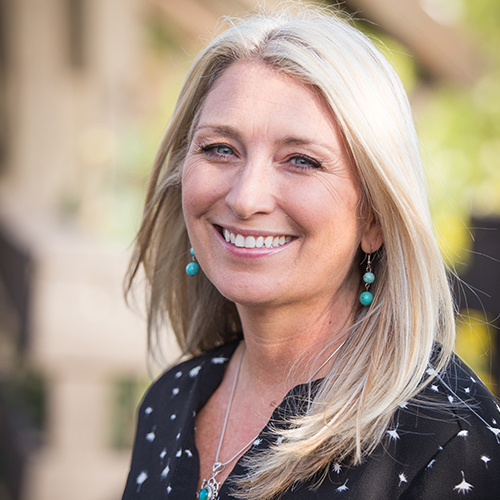
Talk To Me: How Breastmilk Acts as a Communication and Gene Expression Tool Between Mother and Child

Laurel Wilson, IBCLC, CLE, CCCE, CLD is a TEDx and international speaker, author, pregnancy and lactation expert, and consultant. She served as the Executive Director of Lactation Programs for CAPPA, the Childbirth and Postpartum Professional Association for 16 years and now is on the Senior Advisor Board. She served on the Board of Directors for the United States Breastfeeding Committee from 2016-2019. She also is on the Advisory Board for InJoy Health. She owns MotherJourney, focusing on training perinatal professionals on integrative and holistic information regarding pregnancy, childbirth, and breastfeeding. She has her degree in Maternal Child Health: Lactation Consulting and is an internationally board certified lactation consultant. As the co-author of two books, The Attachment Pregnancy and The Greatest Pregnancy Ever, original Editor of the CAPPA Lactation Educator Manual, and contributing author to Round the Circle: Doulas Talk About Themselves, she loves to blend today’s recent scientific findings with the mind/body/spirit wisdom. Laurel has been joyfully married to her husband for nearly three decades and has two wonderful grown sons, whose difficult births led her on a path towards helping emerging families create positive experiences. She believes that the journey into parenthood is a life-changing rite of passage that should be deeply honored and celebrated.
Topic: Epigenetics and Breastfeeding: The Potential Longterm Impact of Breastmilk - [View Abstract]
Topic: Hold the Phone! Diet Does Matter During Breastfeeding: Implication of Diet on Fatty Acid Composition and Other Nutrients - [View Abstract]
Topic: Postpartum Mood Disorders, Breastfeeding and the Epigenetic Links from Past Into Future - [View Abstract]
Topic: Talk To Me: How Breastmilk Acts as a Communication and Gene Expression Tool Between Mother and Child - [View Abstract]
Topic: The Milk Sharing Conundrum - The Grey Area Between Scope and Need - [View Abstract]
Topic: The Placenta and Breastmilk-Unraveling the Mysterious World of the Intelligent Organs that Protect our Babies - [View Abstract]
Topic: Understanding Zika and Lyme and Breastfeeding - [View Abstract]
Topic: Unraveling the Mysteries of Human Milk: The Fascinating Role of Neohormones, Epigenetics, the Microbiome and More! - [View Abstract]
Breastmilk has long been understood to be a pathway towards long-term health for both mother and child. The specific mechanisms for how this communication works has long been studied and today many researchers believe that messenger RNAs and stem cells contribute in many ways to appropriate developmental pathways for the baby and cause gene activation that promotes health for life. mRNA in breastmilk can also be influenced by the time of day and even the timing of the babies delivery, becoming adaptive for the baby’s unique needs. Not only do these messenger RNA communicate important genetic information to the baby via breastmilk, changes in the mothers body via mRNA occur during lactation responding to a new “mothering” focus during the period of lactation. This may impact the mother’s postpartum mental states, adaptation to stress, and changes in fatty acids. This presentation highlights some of the fascinating studies that demonstrate the myriad of ways that stem cells and mRNA during lactation become the ultimate communicators, affecting change for years to come.

View Details / Enroll


Shondra Mattos is an IBCLC, Entrepreneur & Speaker who delivers progressive, up-to-date lectures that challenge the current standard of Lactation Care. She is widely regarded as the go-to source for those looking for clear, understandable clinical knowledge.
In 2018, Shondra rebranded her lactation practice Mattos Lactation and provided location-independent lactation support to families across the country. In 2020 she founded Lactnerd LLC with the focus of helping healthcare providers gain knowledge while conquering the intimidation of learning the complex science of Lactation.
Through her companies- Lactnerd & Mattos Lactation - she provides tools, resources, education & mentoring to aspiring and established lactation professionals across the USA.
This presentation will cover skills & strategies of conducting assessments of oral dysfunction in a telehealth setting, a situation many Lactation providers were thrusted into due to Covid-19. Through real life examples of processes & strategies I use in my location-independent practice which specializes in oral dysfunction, the learner will gain practical insight to improve the quality of the virtual lactation visits they provide.


Wendy is a breast biologist at the University of Adelaide, Australia. Her research explores the biology of how the breast develops and functions to better understand how disease states occur, including lactation mastitis and breast cancer.
After postdoctoral research as an NHMRC CJ Martin Fellow at Albert Einstein College of Medicine in New York, USA, Wendy returned to Adelaide in 2005 and established the Breast Biology and Cancer Unit at the University of Adelaide. In 2011 she was appointed a National Breast Cancer Foundation Fellow and also The Hospital Research Foundation Associate Professor of Breast Cancer Research, which is her current appointment.
In 2016 Wendy won the Award for Excellence in Reproductive Biology Research from the Society for Reproductive Biology. Wendy’s research challenges old paradigms and explores new concepts in how the breast develops and functions to improve breast health across the life course.
The mammary gland is a unique tissue, common to all mammals, that undergoes the majority of development postnatally, particularly during puberty and pregnancy. During pregnancy, the mammary gland acquires the ability to make and secrete copious amounts of milk to provide essential nutrients and immunological protection to the newborn. The biological mechanisms that lead to milk synthesis and secretion are finely orchestrated as the composition, abundance and timing must meet the unique and specific needs of each mother-baby pair during this critical phase of infant development. This lecture will encompass the developmental mechanisms that enable the mammary gland to undergo lactation, the composition and secretion of breast milk, and a comparative analysis of the mammary gland between human and other mammalian species to better appreciate the remarkable functions of this unique tissue.

View Details / Enroll

The Golden Hour of Neonatal Life: Improving Outcomes Through Evidence-Based Interventions

Dr. Ankur Bio Update - Dr. Kumar Ankur, MD, DNB is working as an Associate Director & Head of the Department of Neonatology at BLK MAX Super Speciality Hospital Delhi, India. He has been working in the field of neonatology with private and non-goverment organisations for improving neonatal healthcare in the country. He is the national faculty and trainer for FBNC (Facility based neonatal care), Neonatal Resuscitation, Kangarroo Mother Care (KMC) and the national assessor for Neonatology Fellowship accreditation programme of India. He has been invited as an expert speaker, faculty, chairpersons for various national and state level conferences and workshops. He has many publications in national & international journal and authored many chapters, guidelines published by Indian Academy of Pediatrics & National Neonatology of Forum Delhi & India. He is also the co-editor of Handbook of Neonatal Clinical Practices. He is also running training program in neonatal Fellowship for postgraduate students & neonatal nurses. Currently he is also the Secretary of prestigious National Neonatology Forum, Delhi. National Neonatology Forum (NNF) is a strong and large body of more than 8000 neonatologists across India and abroad. NNF has been actively involved in advocacy, policy making, research and ensuring quality health care to newborn for the last 4 decades. He had been past Secretary (2014) & President (2018) of Indian Academy of Pediatrics (IAP), Central Delhi Branch.
Topic: Tongue-Tie and the NICU: A Neonatologist Perspective - [View Abstract]
Prematurity is the leading cause of death across the globe, mainly in low resource settings. Infants born at less than 32 weeks gestation, are prone to developing hypothermia, hypoglycemia, and hospital acquired infections after birth. For them, the initial 60 minutes of holistic approach is crucial for long-term outcomes. The “Golden Hour” of neonatal life is defined as the first hour of post-natal life in both preterm and term neonates. This concept includes practicing particular evidence based interventions in the initial sixty minutes of postnatal life for better long-term outcomes like marked reduction in hypothermia, hypoglycemia, intraventricular hemorrhage (IVH), bronchopulmonary dysplasia (BPD), and retinopathy of prematurity (ROP). This presentation will provide a look at the various components of neonatal care that are included in the “Golden hour” of preterm and term neonatal care. Healthcare professionals attending the birth of high risk infants like VLBW (very low birth weight, less than 1500 grams) or high-risk term neonates should be well trained in attending such deliveries and should be able to implement all the management protocols during the golden first 60 minutes of life.

View Details / Enroll
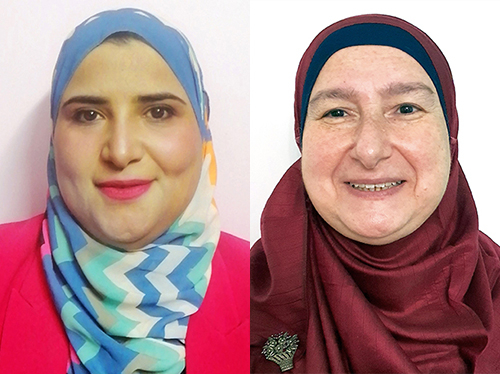

Dr. Fayrouz Essawy, pediatrician, neonatology consultant, an international board-certified lactation consultant, Neonatology Egyptian fellowship trainer, a baby friendly hospital initiative coordinator and associate alumni, Harvard Medical School Harvard Graduate of Training Of Trainer program 2020. Harvard Graduate of Egypt Clinical Scholars Research Training (CSRT) program 2021. Member of the Egyptian Society of Pediatrics Member of the Egyptian Lactation Consultants Association (ELCA) Member of the Academy of Breastfeeding Medicine (ABM) Member of the International Lactation Consultant Association (ILCA).
Amal Aly Roshdy Hassan Eltawil is a graduate of Faculty of Medicine, Cairo University, class of 1986 who obtained Masters of Pediatrics in 1992 from Faculty of Medicine, Cairo university, and Doctorate of Pediatrics from Al Azhar university in 2002. Amal became an IBCLC in 2003. Since 2004 she has been providing a pre-exam course for the Egyptian Lactation Consultants' Association of which she is a board member, treasurer and education coordinator. She is also a member of the Advisory committee of IBFAN Arab world since 2012. Amal is a member of ILCA since 2008 and a member of the Academy of Breastfeeding Medicine (ABM) since 2009. She became a fellow and Board member of ABM in 2021.
Breast milk can appear in many different colors. Most of the time these colour variations are normal, but sometimes they are an indicator of disease and it's important for care providers to know the difference. The presence of an unusual milk color, especially with colostrum, may also be a barrier to exclusive breastfeeding as it can be worrying for parents. This presentation will examine some of the various colours of breastmilk such as blood-stained, blue, and bluish-green, pink and brownish. Case studies will help identify the causes of these colour variations and when to consider underlying disease.







